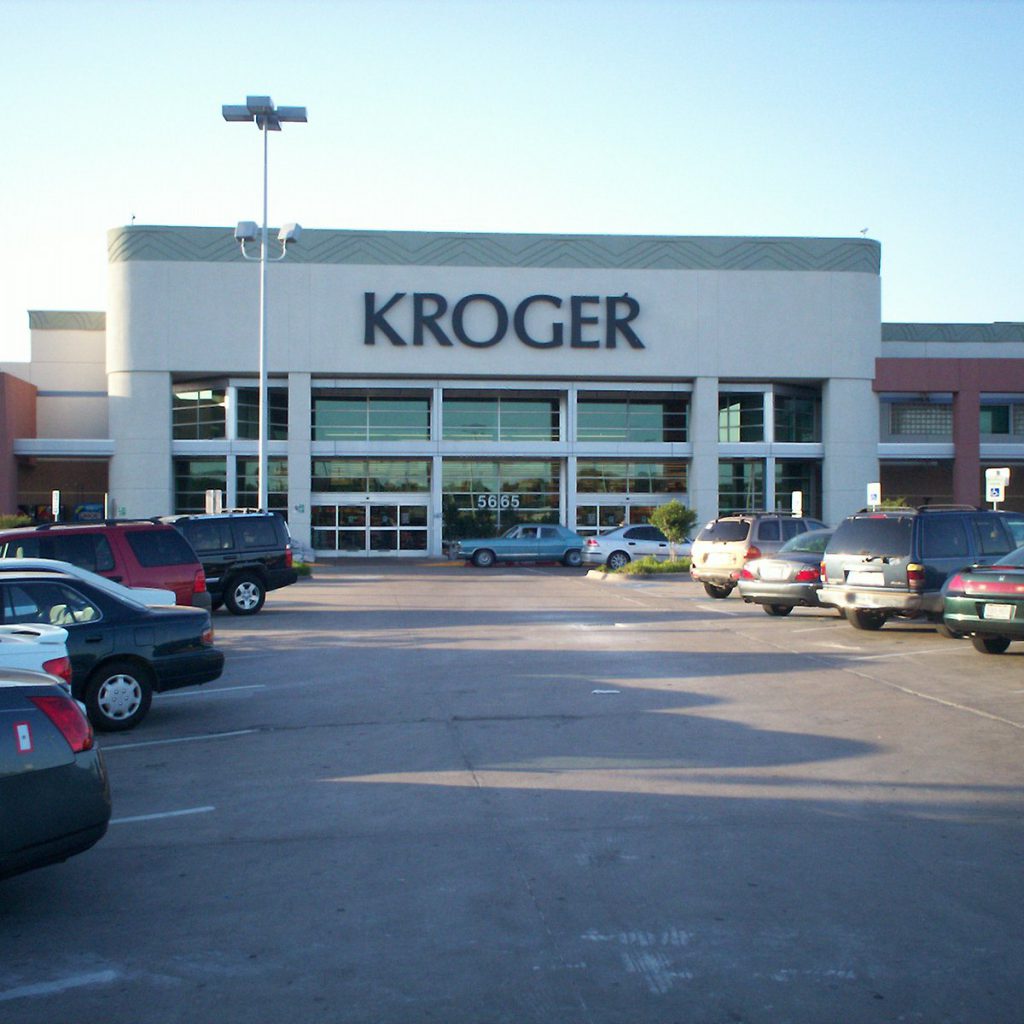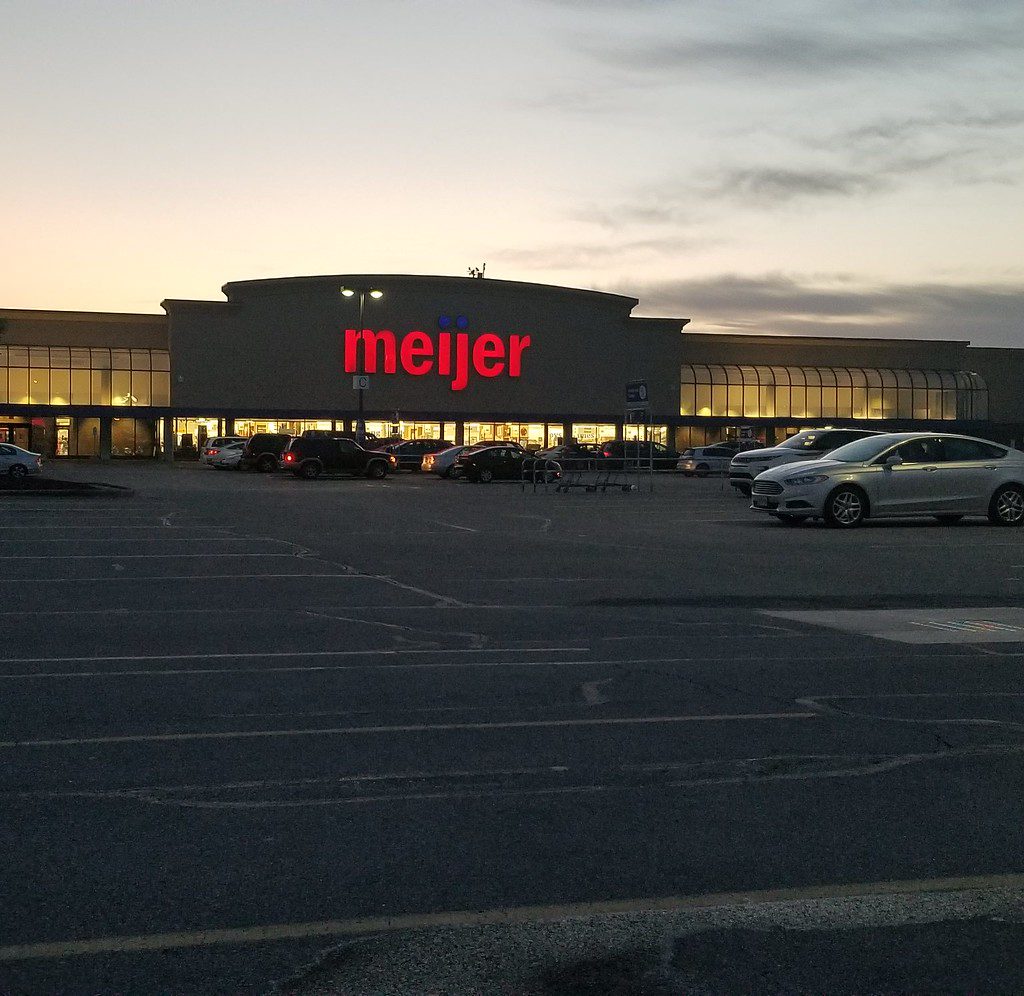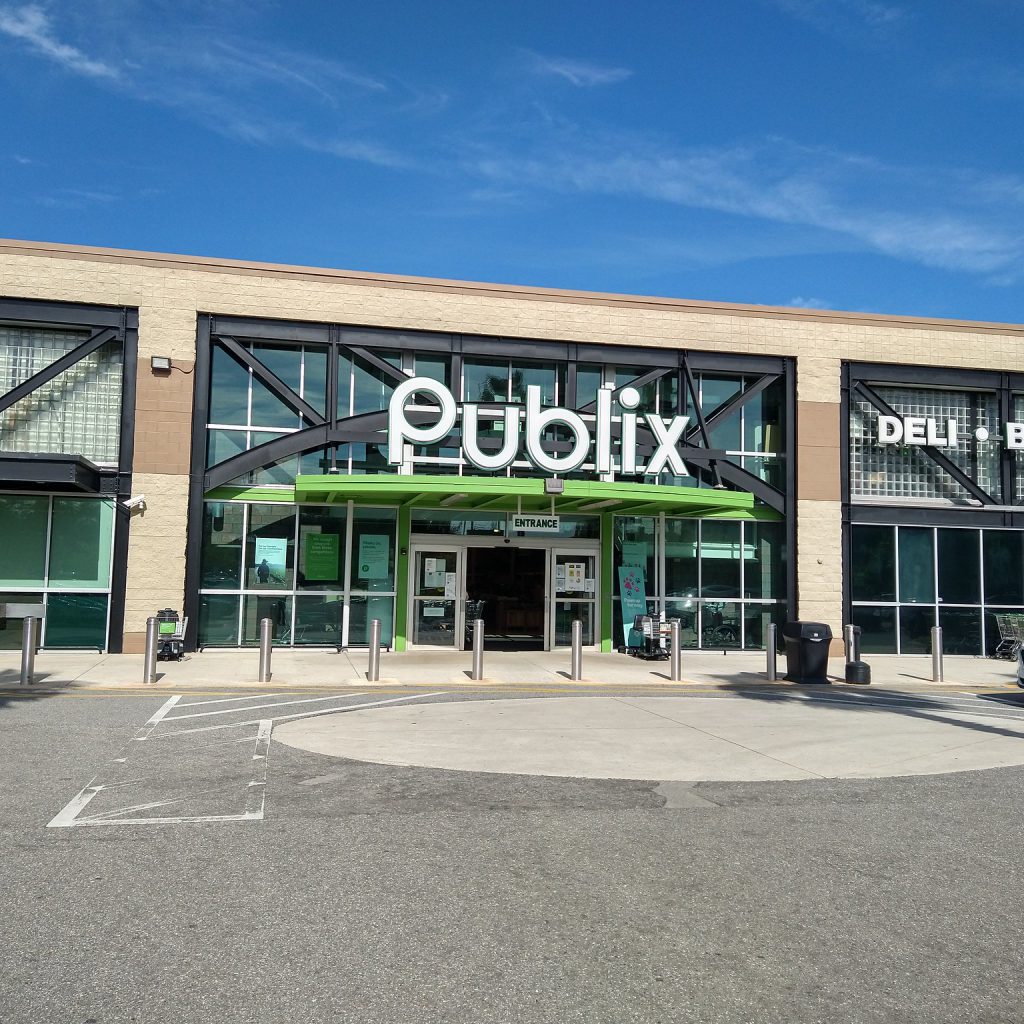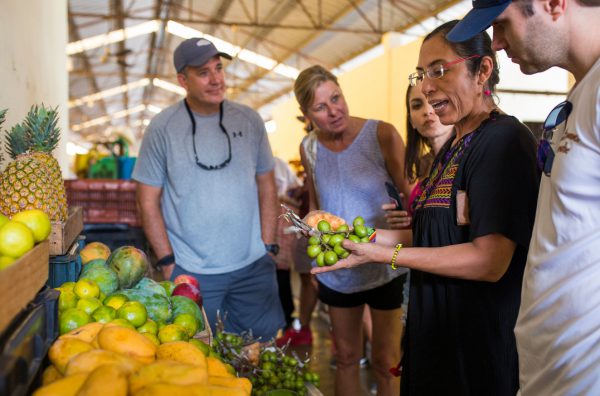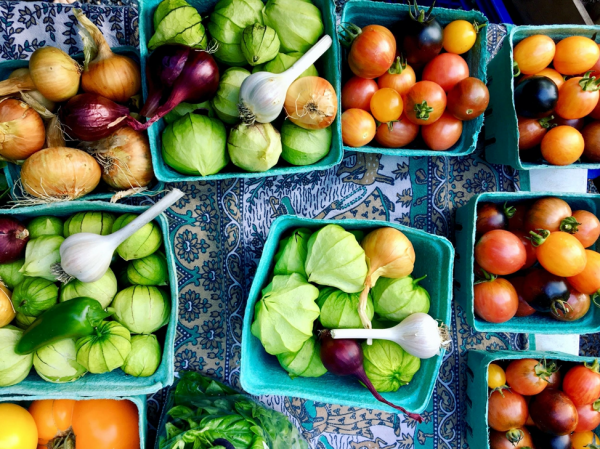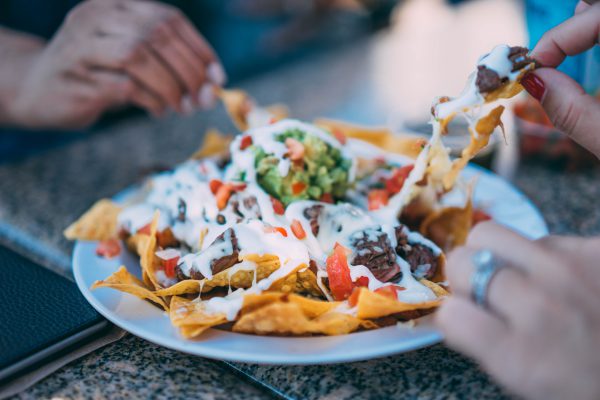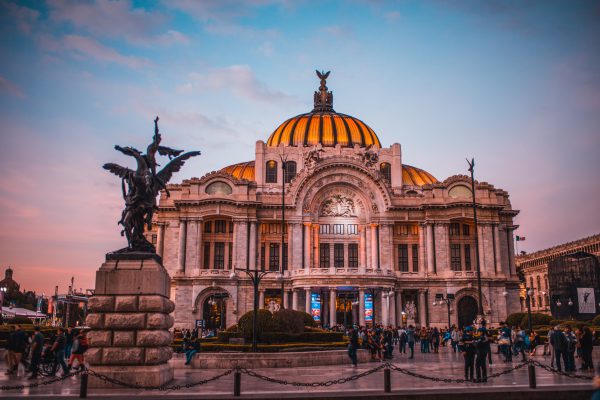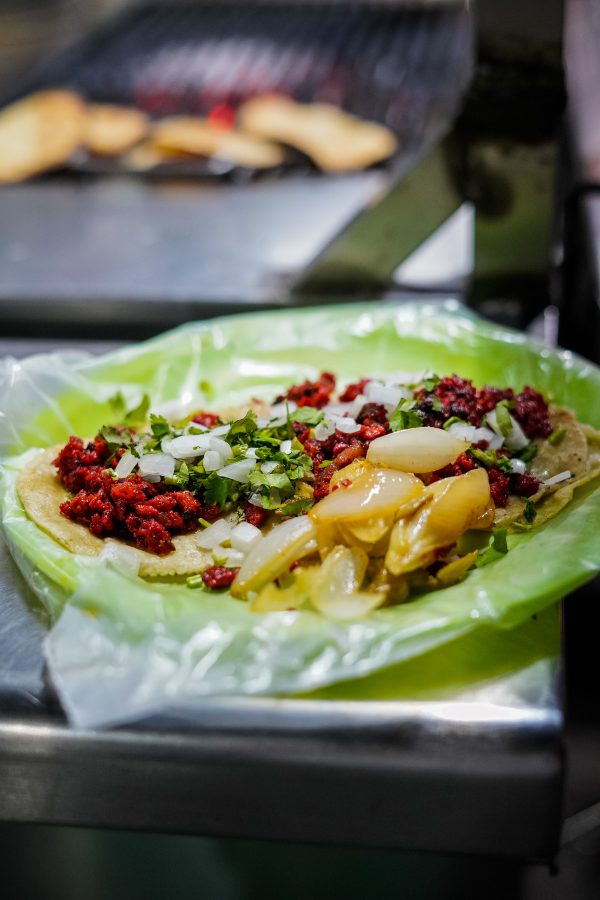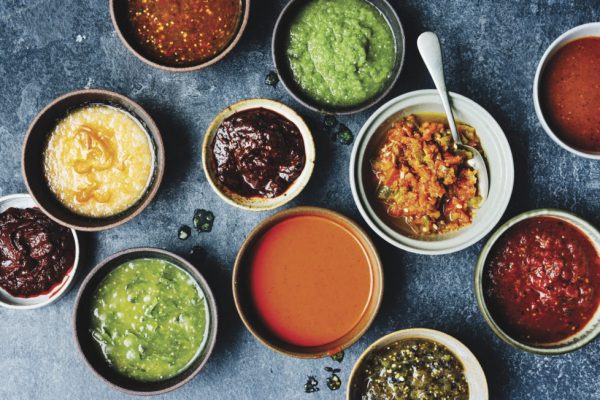Last Updated on May 18, 2023
Considering the enormity of the United States, the sheer number of supermarket chains across the country is hardly surprising.
Some grocery stores are more common in certain regions rather than others. For instance, you have Wegmans in New York but lack Publix, which is typical for Florida. This makes it hard to choose the best grocery store in the country.
However, there are some big and small chains operating in almost every state, which have conquered customers’ hearts with their quality, prices, variety of items, and stellar customer service.
Let’s discover the best grocery stores in the United States and share why we like them and where they can do better.
What’s The Best Grocery Store for You?
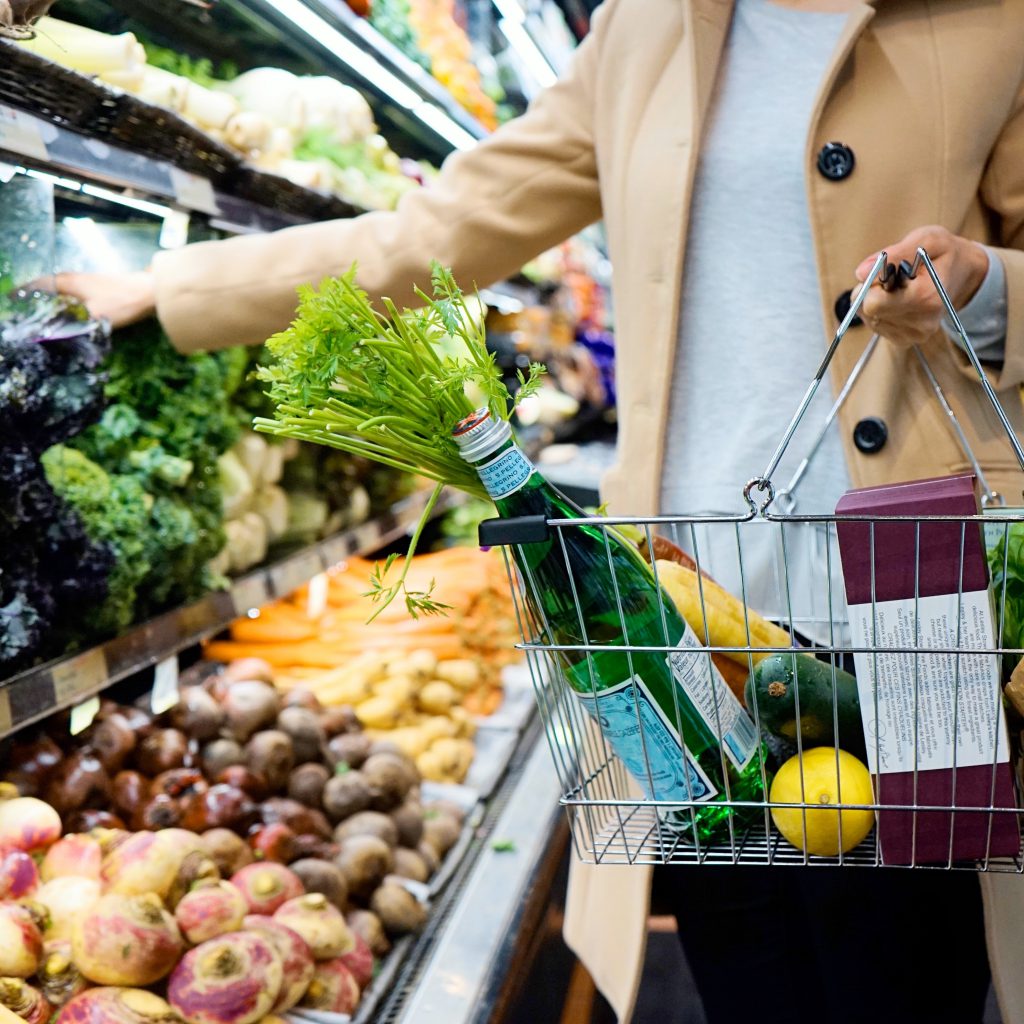
When picking a grocery store, it’s usually a trade-off between the quality of the product, the overall shopping experience, and price tags. For example, some supermarkets look better with their more orderly, even decorated aisles. But those usually come with more expensive products.
On the other hand, some other stores sell brands that don’t put much effort into looking good but focus on functionality. These are also known to be discount stores, and as the name suggests, what you get is simply good deals on humble products.
Every city has its own chains of supermarkets. Even though some companies don’t operate in some cities, you’ll generally have many options to choose from. The best one for you will depend on what you’re looking for. Is it the best products, the best discounts, or the best bulk?
For example, going to Trader Joe’s doesn’t make much sense if you need toilet paper in bulk. However, if you’re looking for a good deal on a good bottle of wine, that’s exactly the store to hit.
Below, you’ll find a list of the best grocery stores operating in the United States — in no particular order — with their ups and downs. We tried to include a good variety, so you can easily decide where to go on your next grocery shopping trip.
Hmart
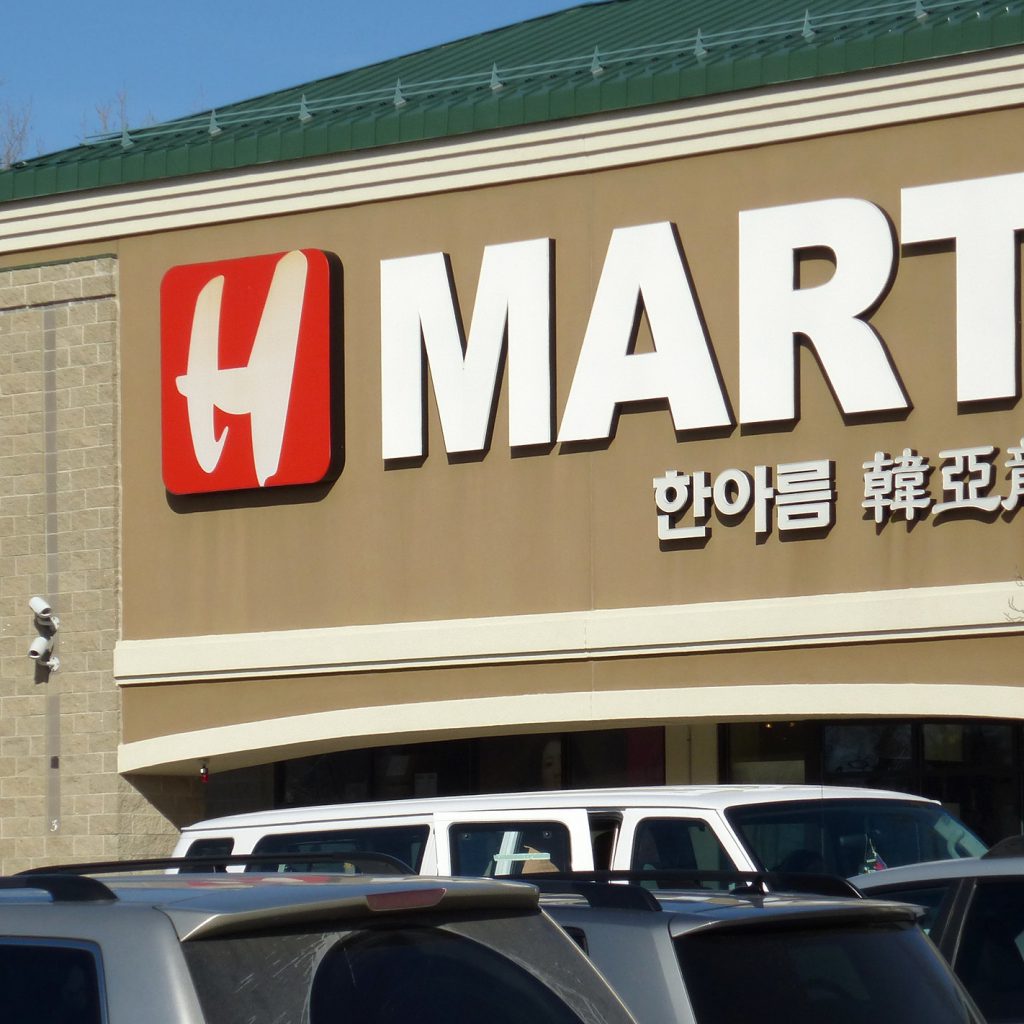
By liz west
If you have never walked into a Hmart, get ready to be shocked by the variety of products in there. It’s a Korean-American supermarket chain claiming to provide quality Korean food and other necessities.
It’s the best place to shop if you have an East Asian recipe in mind – from Korean rice cakes (tteok) to banchan, those delicious appetizers they serve at Korean barbecue restaurants – as it has some ingredients you can’t find anywhere else.
Hmart also sells quality meat, fish, and other seafood. And despite the quality of the meat section, it’s still cheaper than buying meat/fish from a high-end fishmonger or a butcher.
Hmart definitely has a lure. The shelves are packed with endless different products, the stores are maintained professionally, and what you get is never chav, always the real deal.
However, Hmart is not the most budget-friendly grocery store. The store’s specialty is high-quality Korean and East Asian ingredients, but in terms of basic household necessities and regular ingredients, Hmart is overall more expensive than regular supermarkets.
Whole Foods
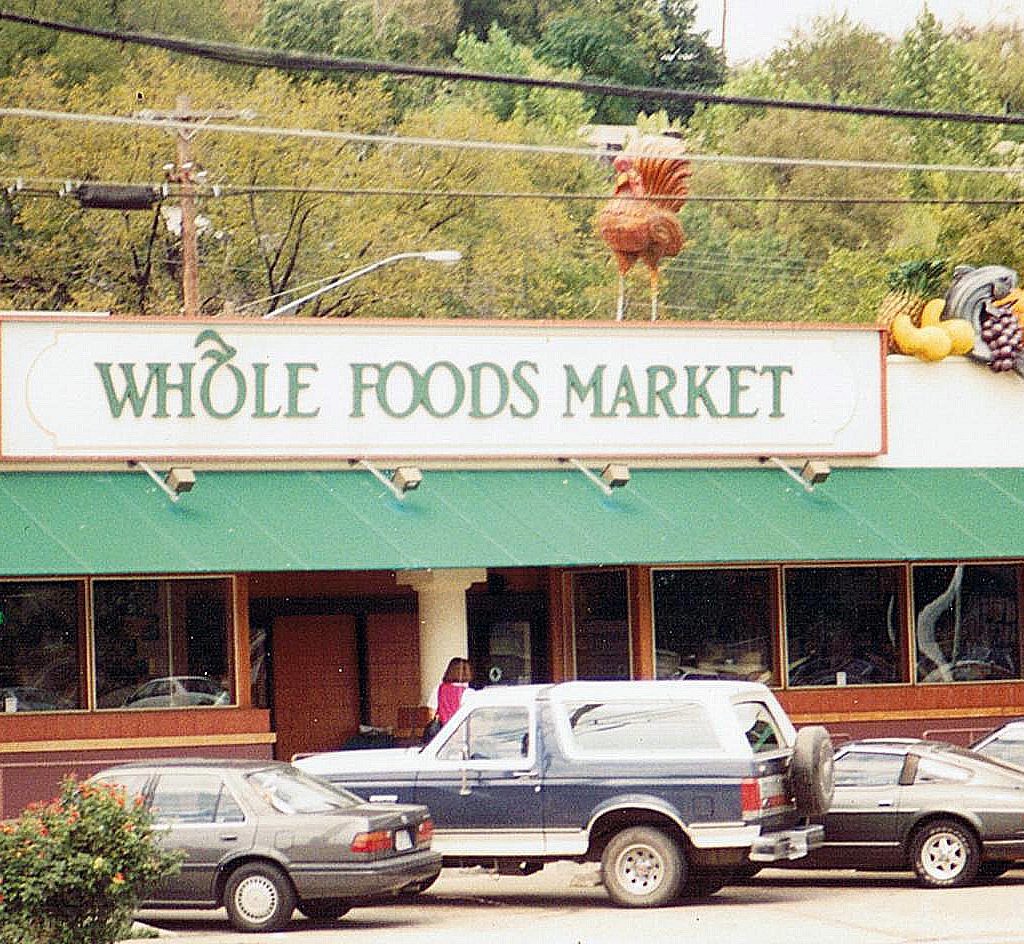
Whole Foods is a premium supermarket specializing in organic and healthy produce. Per its focus on organic and healthy goods, the store has a list of banned ingredients with more than 200 items on it. This means you won’t find high fructose corn syrup or chemical soy sauce in there. It’s quite convenient for people who diligently study the ingredients list before putting anything in their shopping cart.
However, a shopping trip to Whole Foods costs around 10-20% more than a shopping trip to an average grocery store. The higher quality of products is one side of it, but you’re also paying for the pretty interior design and the salary of the happy employees, which is also why you get better customer service.
Having said that, Whole Foods is still not the most expensive grocery store in the US when you compare it to, let’s say, Acme Market, Harris Teeter, or Fresh Market.
Trader Joe’s
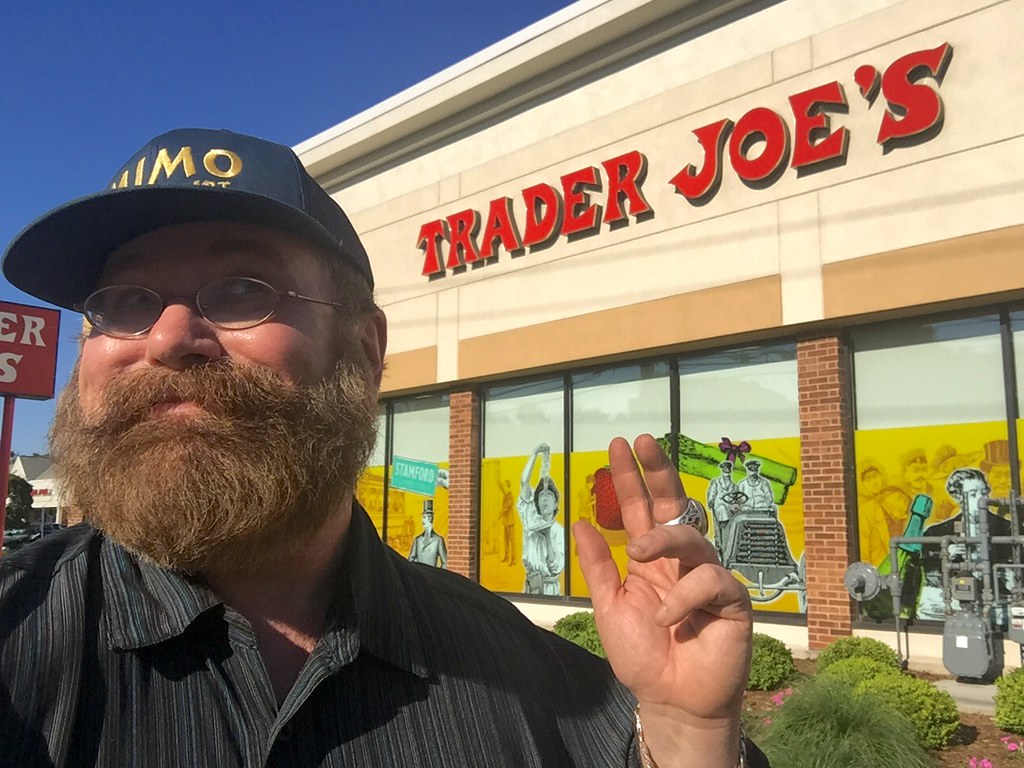
By Mike Mozart
Trader Joe’s is one of the most unorthodox grocery stores you can shop at, or maybe we should say experience. The first thing you notice about it is its quirky atmosphere with plastic lobsters and creative signs. The catchphrases on the labels and chalkboards around the store might make you chuckle more than often. And if you need any help, look for the people with the Hawaiian shirts, they’ll go out of their way to assist you.
There’s a good variety of regular everyday products in Trader Joe’s, but where the store excels is its unique privately branded items. There are special snacks, pasta, seasoning blends, sauces, and pre-made meals… The list goes on. Trader Joe’s’ private brand products are one of the most successful in the US, bringing an appreciable fan base who dedicatedly shop there.
When it comes to prices, Trader Joe’s isn’t a particularly cheap supermarket. But it does sell unique items that you can’t find anywhere else. Moreover, because the store works with the producers directly under its private label, the price tags on some products are actually quite competitive, such as Trader Joe’s’ private label wines.
Wegmans
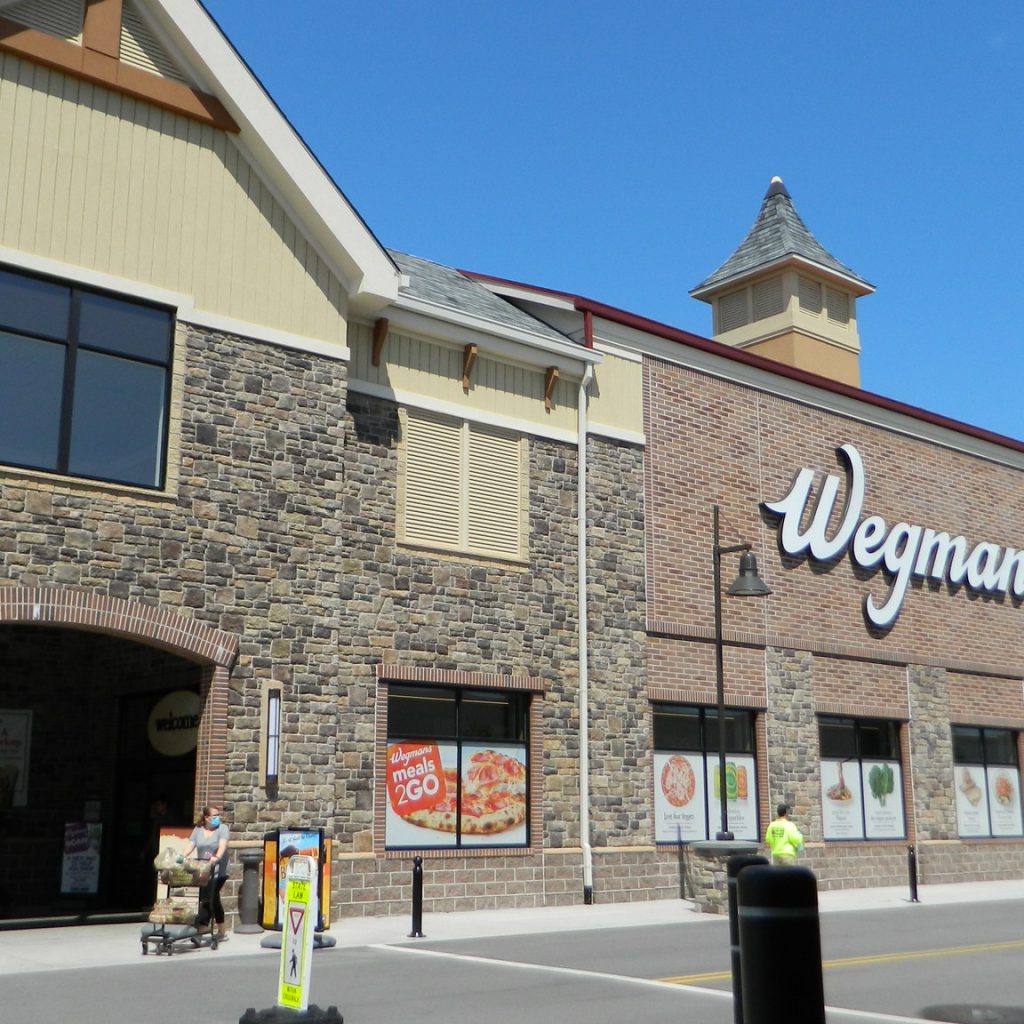
By Ryan
Wegmans has had the reputation of being one of the best grocery stores in the US for a very long time. It’s not a particularly luxury grocery store with over-the-top prices, but it’s definitely not a budget-friendly one, either. You can think of it as being somewhere between Kroger and Whole Foods.
The product selection at Wegmans is typically high quality, and its welcoming, spacious atmosphere is different from a regular grocery store. If you like a store that puts up artistic displays from quality ingredients — seriously, whoever arranges the vegetable section there deserves a pat on the back — Wegmans is right up your alley.
Apart from the blissful shopping experience, Wegman does offer a selection of reasonably priced products. Just like Trader Joe’s, Wegmans’ brand items like gourmet cheese, fresh produce from Wegmans’ own organic farms, and EZ meals (their ready-to-heat convenience meals) aren’t particularly high priced, especially for the quality you get.
Kroger
Kroger is the largest supermarket chain in North America and the world. So the chances you’re living close to one are quite high. And as you can imagine, the largest supermarket chain in the world also has quite a large product selection.
Not every product sold by Kroger is necessarily top quality. However, Kroger does source fresh produce from small farms, which feels almost like a farmer’s market during the in-season. Plus, the meat in Kroger’s deli section is one of the best in the country, and the offer is quite versatile. So if you’re looking for a place to buy freshly cut pork chops, steaks, chicken breasts, or ground beef, you don’t need to search further. As a side note: their bakery section is quite appetizing too.
Keep in mind that, unlike Walmart or Meijer, Kroger doesn’t double as a department store, so you can’t find home goods, gardening tools, or clothes there. But for groceries, Kroger offers some good quality products, especially if you’re on a budget.
Meijer
Meijer is the originator of the supercenter concept, selling both groceries and everything else you could want, such as clothes, home goods, or outdoor stuff. There’s even an automotive department in some of the Meijers. Unsurprisingly, an average Meijer is quite big, bigger than Target and Kroger. In some of them, you’ll even find a barbershop or a nail salon, along with pharmacies and restaurants.
The produce you’ll find at Meijer is not only incredibly diverse but also quite good. You can get unique fruits and vegetables on top of your regular salad mix and tomatoes. The company also has its own organic line, which offers organic everyday staples at reasonable prices. There’s also a Meijer Natural brand, which isn’t certified organic, but still produces strictly non-GMO produce.
Overall, Meijer is a good supercenter — not a supermarket — that sells almost anything you could need on a daily basis. The only place where Meijer falls short is in providing state-of-the-art customer service and a more aesthetically pleasing shopping experience.
Walmart
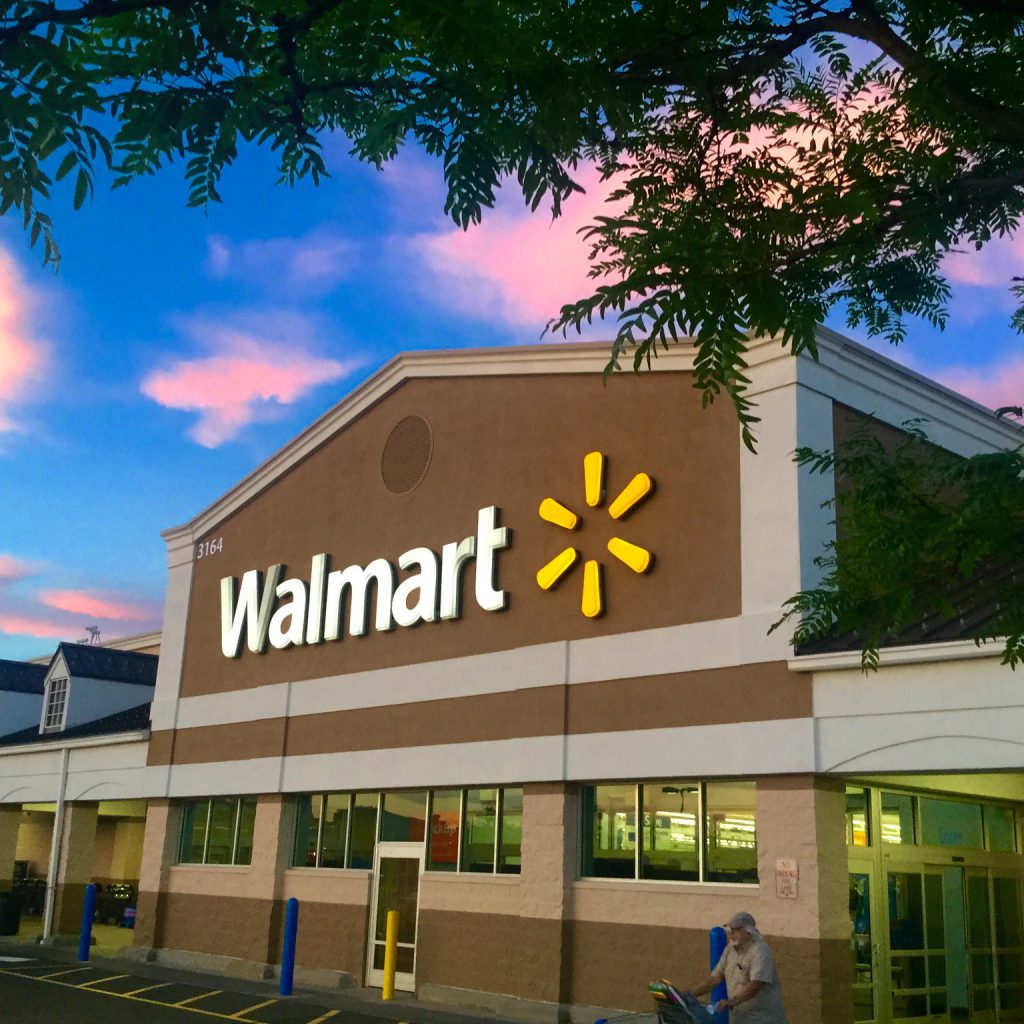
By Mike Mozart
Just like Meijer, Walmart is a supercenter that markets food, household items, clothing, and other whatnot. In terms of grocery shopping, Walmart usually has a pretty large supermarket section.
Just to be clear, this is definitely not a fancy place, however, because they market a huge array of goods and produce, Walmart can get away with a lower margin of profit. This means you’ll find quite a few deals at Walmart. But still, it’s not as cheap as Aldi, let’s say.
One advantage of Walmart is its huge range of products. Plus, no matter where you are in the US, there’s probably one in your neck of the woods — the only state that hasn’t been blessed by a Walmart yet is Hawaii. However, Walmart’s strong suit is limited in quantity, so don’t expect to get high-quality products there.
Another reason to shop from Walmart is their online shop, Walmart+, which offers free next-day shipping on orders over $35 and further benefits if you become a member.
Aldi and Lidl
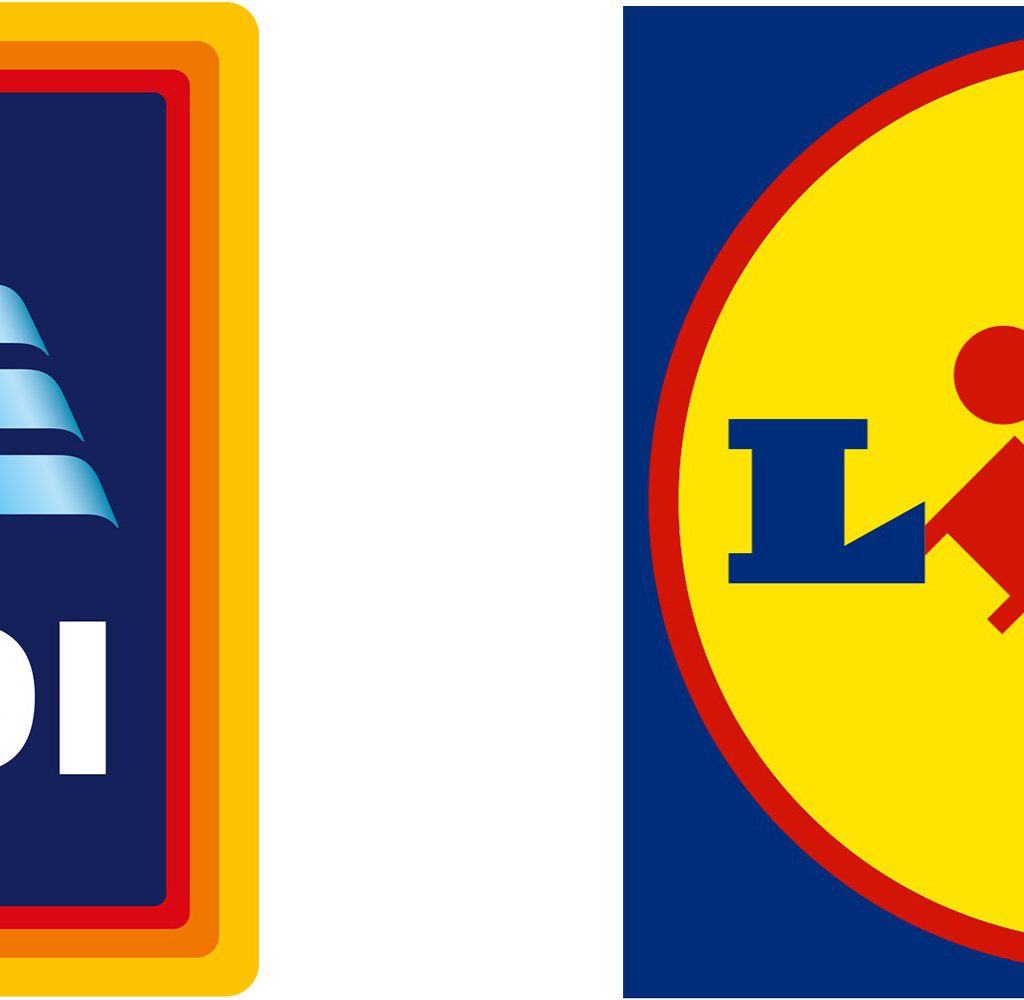
Aldi and Lidl are German supermarket chains with their own brands for almost everything they sell in their stores in the US. Most of the products are quite cheap, almost half the price of whatever you’d get at Whole Foods.
Even though Aldi is known for being the cheapest grocery store, if you live close to a Lidl, you wouldn’t be missing out on much, as they have quite similar price tags on average. They both have a good variety of products and can help you save so much money over the long term.
The low prices might leave you skeptical about the quality, but they have quite a good selection of products. While Aldi and Lidl don’t have an in-house butcher, they both sell organic, grass-fed USDA-certified beef.
Having said that, being discount stores, you shouldn’t expect nice decorations and beautiful displays in either of these stores. They also don’t have a huge variety of products to choose from. They are simple, cheap, and moderate supermarkets offering exactly what they promise.
Sam’s Club, Costco, and BJs

Some stores are good for getting organic veggies and others turn your shopping trip into a whole experience with exhibits they create out of top-quality products. Costco, BJs, and Sam’s Club are not one of those stores. However, they do excel at something else: wholesale.
Costco, BJs, and Sam’s Club specialize in selling bulk, so they are the places to go when you need larger get-togethers, household products like soaps, paper towels, and other whatnot in volume. This can save you lots of money over time, especially if you’re shopping for a crowded family.
One important thing to know about Costco, BJs, and Sam’s Club is that they are membership stores. This means you need to sign up with them before you shop there, but you’re entitled to a refund if you’re ever dissatisfied. As of late 2022, a membership at Costco is $60, and $55 at BJs and Sam’s Club.
All of the stores also offer upgraded memberships with different perks, from annual rewards, free shipping on online orders, and further discounts to deals on vacation packages, car rentals, and hotels. To see all the benefits in detail, you might want to visit their websites.
All of these wholesale warehouses are quite similar in terms of customer service, product variety, quality, and prices. So when considering joining one of them, base your decision on the location, as driving to a farther store back and forth throughout the year can cancel out the money you save.
Publix
Publix is the largest employee-owned company in the US and one of the largest supermarket chains across the US. However, Publix operates only in the southern states. Employee-owned company means the workers gain an ownership interest in the company. This creates a great incentive for Publix workers since the supermarket chain is known to have superior customer service with super-friendly staff.
Publix puts a great emphasis on customer experience. That’s why the stores are always pleasantly organized and sparkling. They provide extra services for seniors for free.
Their in-house bakery and delis are top-notch — their fried chicken is also somewhat famous. The displays are arranged quite nicely, and they handle perishables with extra care. If the product isn’t sellable, it’s donated or tossed instead of ending up in a sad discount section so that whatever you get is always top quality.
As per Publix’s prices, it’s not a luxurious supermarket like Whole Foods and Wegmans, but it is one of the most expensive supermarkets you can shop in the Southern US. It’s worth a trip if you care for beautifully designed aisles and cutting-edge customer service or if you’re obsessed with their in-house bakery or delis.
Independently Owned Supermarkets

Huge supermarket chains aside, the US has a lot of independently owned supermarkets scattered across the country. Some specialize in ethnic foods, while others just fill in the gaps of larger stores.
If you live in a metropole, chances are you’ll find big and small Hispanic, Russian, East and South Asian, or Kosher supermarkets as well as regular western markets.
These stores usually have regular customers, but there’s no reason you shouldn’t embark on an adventure and discover what they offer. You might find a new ingredient that’ll bring a fresh breeze to your kitchen and become a regular too.
Bonus: Your Local Farmers Market
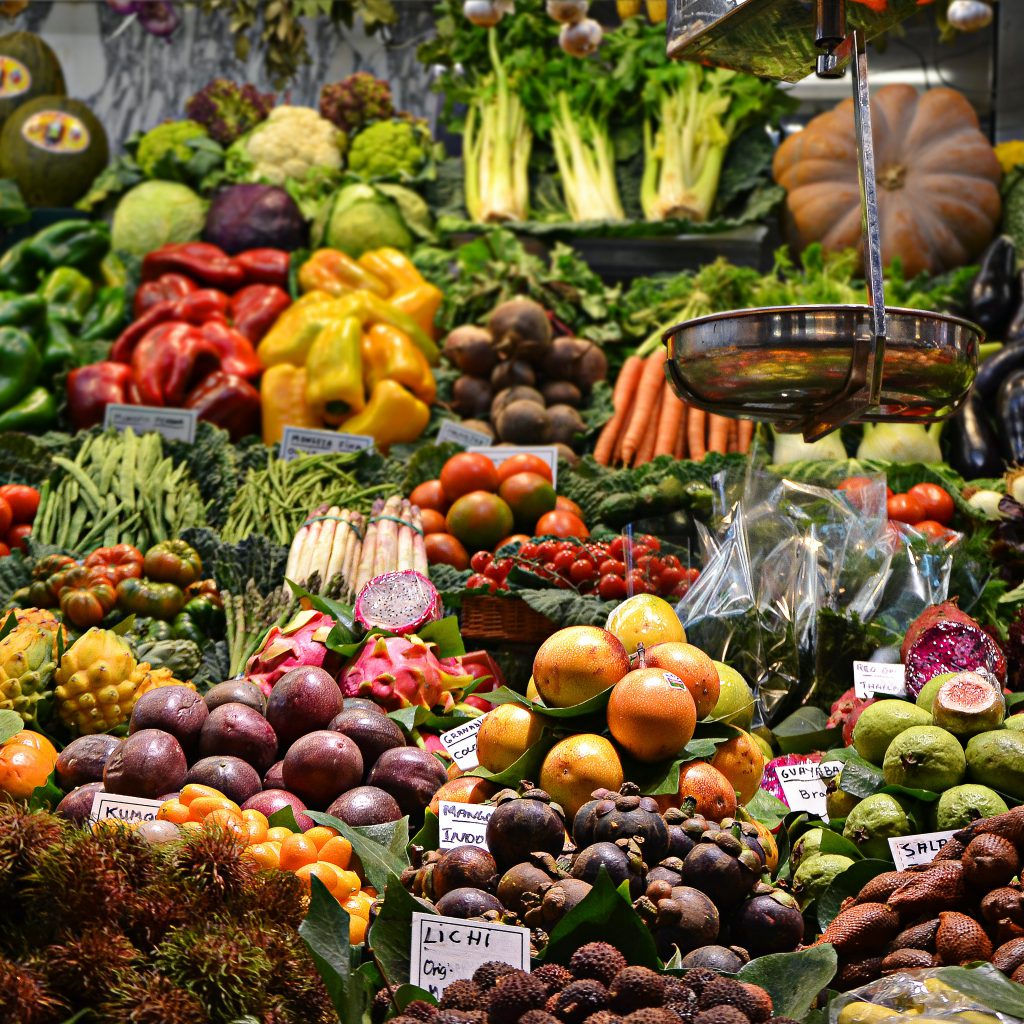
Shopping from a supermarket chain where the whole experience is designed to be pretty isn’t particularly a bad thing. But if you’re looking for the freshest produce, where you should be going is your local farmers market.
Big supermarket chains usually supply their produce from far-away producers. This means the produce, especially perishables, go through a considerably long trip before arriving on the store shelves.
Shopping from your local farmers market has quite a few advantages, such as avoiding travel-sore fruits, veggies, and herbs, always finding in-season produce, reducing your carbon footprint, and supporting your local community.
Over and Out!
There are many individual stores and chain stores where you can get your weekly supplies from in the States. However, the best one depends on your needs and wants. Perhaps the best thing about the capitalist supply chain is that it provides a niche for everyone with different consumption habits. Hopefully, this post gives you ideas on what to expect from each supermarket chain operating across the continent.
